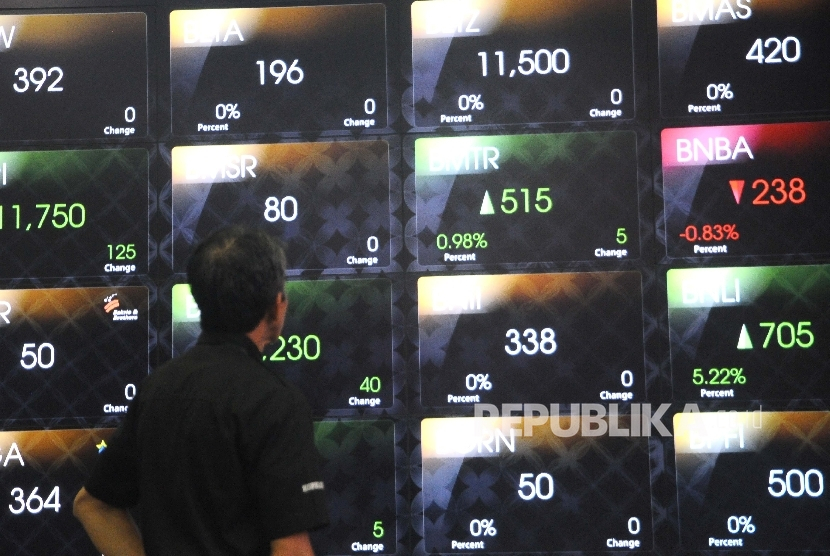Indonesia Stock Exchange weakens driven by energy and banking stocks

The Composite Stock Price Index (JCI) of Indonesia Stock Exchange (BEI) weakened at the close of trading on Thursday (17 February). The JCI briefly touched the green zone at the level of 6,859.70, but then the JCI ended down 0.22 percent to 6,835.11.
The energy sector was negative and dominated the decline with ADRO corrected by 0.89 percent to a level of 2,220 and PGAS trimming 0.69 percent to a level of 1,440. In addition, shares of large compact banks weakened with BBCA discounted 0.94 percent, BBNI down 0.61 percent and BBRI down 0.45 percent.
Several stocks that entered the ranks of the top losers, among others, AMAR with the steepest decline of 7.00 percent, then PSKT cut 6.50 percent, followed by BUMI sinking 5.88 percent and BWPT lost 5.68 percent. Meanwhile, foreign investors booked a net purchase of Rp 618 billion.
Analysts at Pilarmas Investindo Sekuritas said Asian stock market players seemed to wait and see regarding the efforts of most Asian countries to relax quarantine policies.
The release of Japanese export data, which was lower than expected in line with pressure from overseas demand, had a significant impact on the country's recovery.
Market participants also continued to monitor geopolitical developments carefully after NATO accused Russia of increasing troops on the Ukrainian border, a day after Moscow claimed it had begun withdrawing some of its military units.
Domestically, market players are watching the depreciation of the rupiah against most currencies. The weakening of the rupiah in Europe occurred amid developments in economic data in the UK and the season for the release of corporate financial reports in Europe.






 - 01 Jan 1970
- 01 Jan 1970
